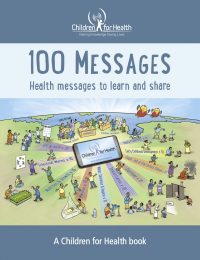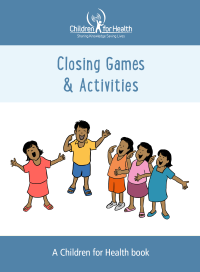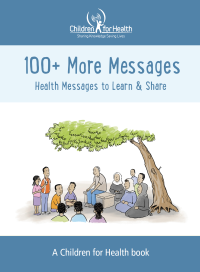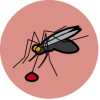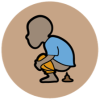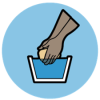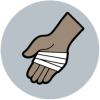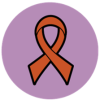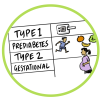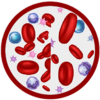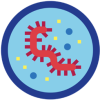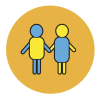Caring for Babies & Young Children

Millions of older children throughout the world play a key role in caring for younger ones.
Informing, recognising and praising older children helps improve this care. Children can play games, cuddle, talk, show, laugh and sing to babies and young children.
Read our Top Ten Messages on Caring for Babies & Young Children for children to learn and share to the right. Scroll down to see ideas on what children can do to understand, find out more, take action and reflect on this topic.
Use the links below to browse our FREE resources to help children learn more, share their knowledge and become agents of change.
10 Messages on Caring
for Babies & Young Children
- Play games, cuddle, talk, show, laugh and sing to babies and young children as much as you can.
- Babies and young children become angry, afraid and tearful easily & can’t explain their feelings. Always be kind.
- Young children learn fast: how to walk, make sounds, eat and drink. Help them but let them make safe mistakes too!
- All girls and all boys are as important as each other. Treat everyone well especially children who are sick or who have disabilities.
- Young children copy the actions of those around them. Look after yourself, behave well near them & show them good ways.
- When young children cry, there’s a reason (hunger, fear, pain). Try to find out why.
- Help prepare young children for learning at school by playing number and word games, painting or drawing. Tell them stories, sing songs and dance.
- In a group, watch and record in a notebook how a baby grows into a toddler and when they do important ‘firsts’ like speak, walk & talk.
- Prevent diseases by helping adults and older siblings to check that babies & young children are clean (especially hands and faces), drink safe water & eat enough good food.
- Give loving care to babies & young children but don’t forget about yourself. You are important too!
Children can learn, collect & share these messages!
While teaching these messages, encourage children to…
MAKE their own Caring for Babies & Young Children Messages using their own words in their own language!
LEARN these messages so they never forget them!
ADD these messages to their collection!
SHARE these messages with other children and their families!
If your class or group is struggling to stay connected and engaged, we have loads of ideas for ideas to help them! Have a look at Closing Games & Activities.
Use the questions/discussion topics below to help children to memorise the messages and really understand them.
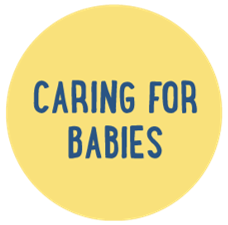
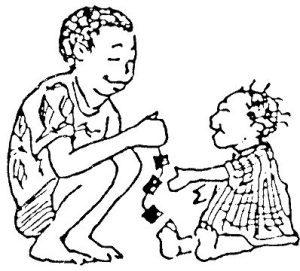
What can children make?
DIVIDE children into groups of ‘boys’ and ‘girls’; have boys play ‘girls games’ and girls play ‘boys games’. Afterwards, have both groups discuss the game. For example, do you agree with the games being called BOYS or GIRLS games? Why or why not?
CHILDREN can discuss what good and bad behaviours are at home (or in the school) and why. They can make poster to show their ideas or do a role play about this topic.
ORGANISE ‘toy-making competitions’ with children. Such as mobiles, rattles, building blocks, dolls, animals and picture books. The competition can be at home, run by community groups or in school.
MAKE drawings and posters to show some of the things that need to be done to prevent diseases.
WRITE a short play about caregivers playing with young children the right way. They can play out the dialogue between two mothers; one who believes young children should be kept quiet and one who believes in playing!
What can children do?
CHILDREN can mime/act out an emotion/feeling only with gestures and face expressions. The other children guess what the feeling or emotion is.
AT SCHOOL, a class can ‘adopt a baby’ from the local community. The mother can come into the class every month or two to discuss with the children how the baby is growing and developing.
MAKE a song or songs to describe the actions necessary to prevent diseases (wash hands, take a bath, wear clean cloths, drink safe water). They can sing them at home with their younger siblings.
OLDER children can interview parents to find out what was most difficult for them when caring for their babies and young children and what helped them the most.
What can children ask?
ASK a health worker or a science teacher to tell you more about how the brain grows and changes during childhood.
CHILDREN can ask their parents and grandparents why and what makes babies cry and laugh. They can share with the class what they have found out.
OLDER children can ask an elder members of the community to teach them songs, stories and games. Then they can share them with babies and younger children.
CHILDREN can ask adults what do they think it is important to do to prevent babies from getting diseases.
Download these free materials now to help children learn and share these
essential health messages. See our free resource section for more!


